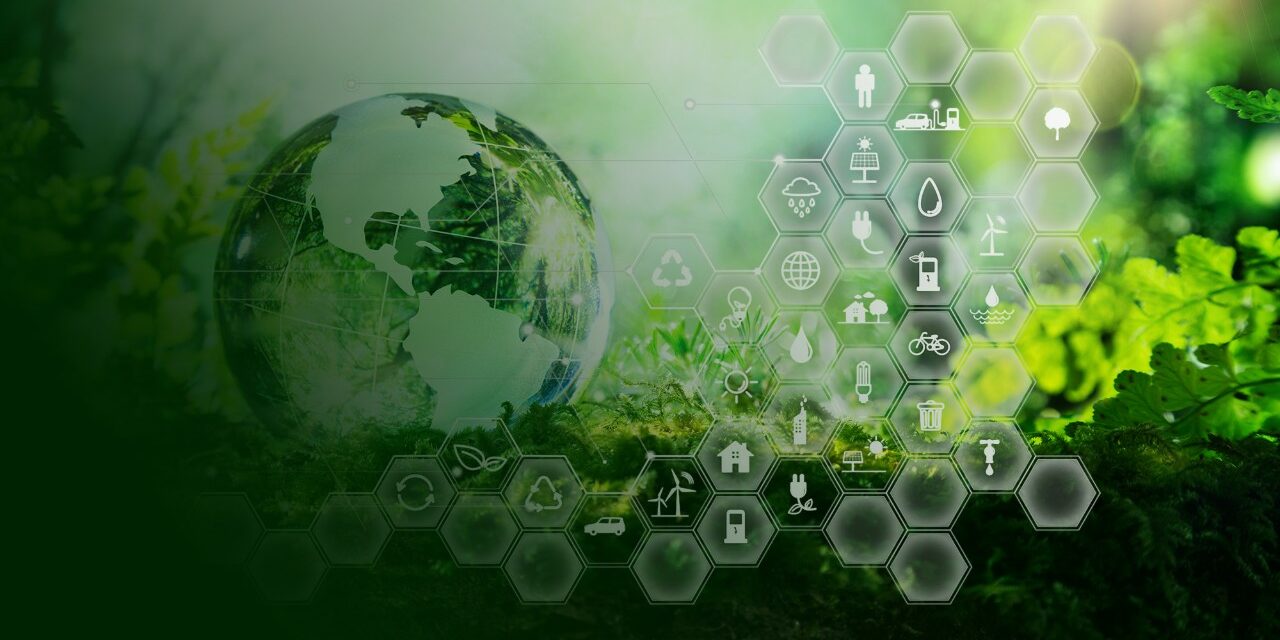In an era where environmental conservation is paramount, technology emerges as a powerful ally in the pursuit of sustainability. Sustainable tech innovations are not merely buzzwords but transformative solutions that address environmental challenges and pave the way for a greener, more eco-conscious future. From renewable energy advancements to eco-friendly manufacturing processes, let’s explore the innovations that are driving environmental conservation through sustainable technology.
1. Renewable Energy Revolution: The transition to renewable energy sources marks a pivotal step in environmental conservation. Solar and wind technologies have evolved, becoming more efficient and cost-effective. Innovations in solar panels, wind turbines, and energy storage systems contribute to a cleaner energy landscape, reducing dependence on fossil fuels and mitigating climate change.
2. Energy-Efficient Smart Buildings: Sustainable tech extends its influence to the construction industry with the rise of energy-efficient smart buildings. Incorporating technologies like smart sensors, automated energy management systems, and sustainable materials, these structures optimize energy usage, reduce waste, and create environmentally friendly spaces for both residential and commercial purposes.
3. Eco-Friendly Transportation: Sustainable transportation solutions are reshaping the way we move. Electric vehicles (EVs), powered by advanced batteries and charging infrastructure, are gaining widespread adoption. Additionally, innovations in public transportation, such as electric buses and the integration of sustainable fuels, contribute to reducing carbon emissions and combating air pollution.
4. Circular Economy Practices: Sustainable tech embraces the concept of a circular economy, where resources are reused, recycled, and repurposed to minimize waste. Innovations in waste management, recycling technologies, and product design encourage a shift away from the traditional linear model of consumption, fostering a more sustainable and regenerative approach.
5. Precision Agriculture for Sustainable Farming: Precision agriculture leverages technology to optimize farming practices and promote environmental sustainability. Drones, sensors, and data analytics enable farmers to monitor and manage crops more efficiently, minimizing resource usage, reducing environmental impact, and ensuring food security in a sustainable manner.
6. Water Conservation Technologies: Water scarcity is a global concern, and sustainable tech offers solutions to optimize water usage. Smart irrigation systems, water-saving appliances, and advanced water purification technologies contribute to efficient water management, conservation, and the preservation of this vital resource.
7. Green Tech in Manufacturing: Sustainable tech infiltrates manufacturing processes, minimizing the environmental footprint of industries. From 3D printing technologies that reduce waste to green materials and energy-efficient production methods, manufacturers are embracing eco-friendly practices that prioritize both efficiency and environmental stewardship.
8. Carbon Capture and Storage: Carbon capture and storage (CCS) technologies play a crucial role in mitigating greenhouse gas emissions. These innovations capture carbon dioxide produced from industrial processes and power generation, preventing it from entering the atmosphere. CCS contributes to the decarbonization of industries and supports the global effort to combat climate change.
9. Eco-Friendly Consumer Electronics: Sustainable tech is influencing the design and manufacturing of consumer electronics. Companies are prioritizing eco-friendly materials, recyclability, and energy efficiency in the production of devices. Additionally, initiatives for electronic waste recycling and responsible disposal contribute to reducing the environmental impact of electronic products.
Challenges and the Path Forward: While sustainable tech presents a promising path towards environmental conservation, challenges such as scalability, accessibility, and initial costs remain. Global collaboration, research and development investments, and supportive policies are essential to overcome these challenges and accelerate the adoption of sustainable technologies on a broader scale.
In conclusion, sustainable tech innovations are not only driving environmental conservation but also reshaping the way we approach technology and progress. The integration of these innovations into various aspects of our lives reflects a collective commitment to creating a more sustainable and resilient future. As technology continues to evolve, the marriage of innovation and environmental consciousness will be crucial in navigating the challenges of our changing world and fostering a harmonious relationship between technology and the planet.





